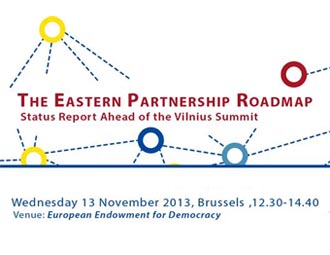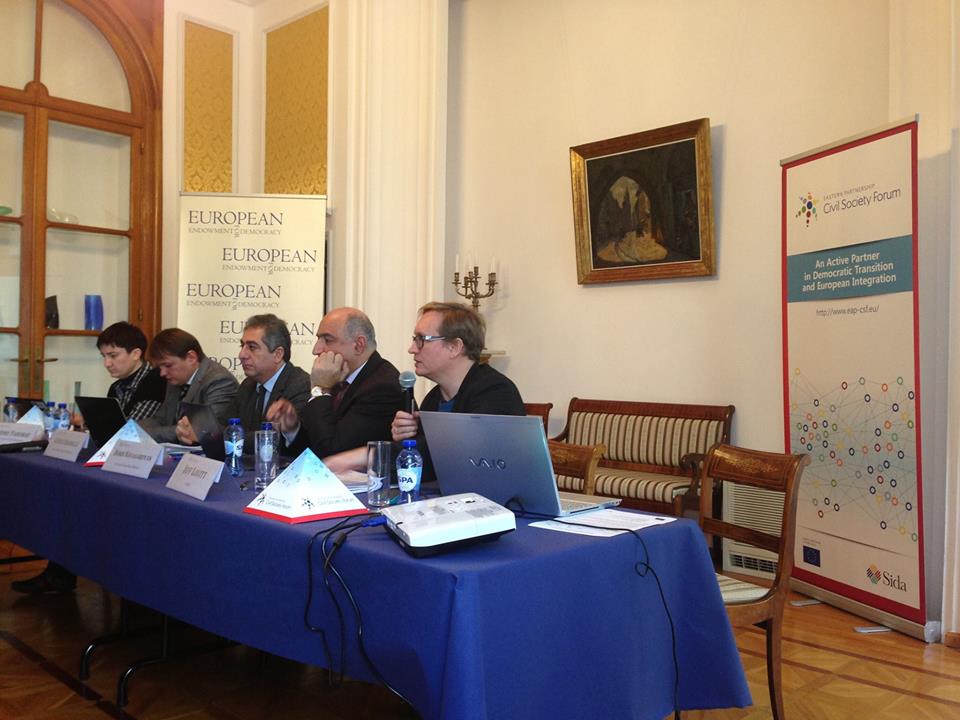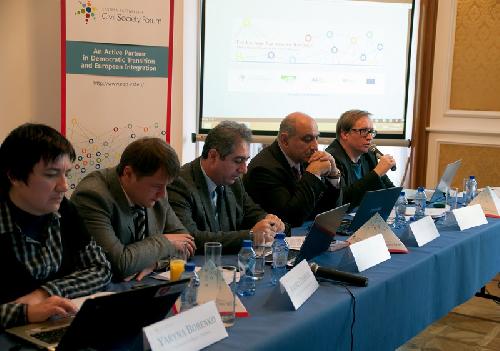The Eastern Partnership Roadmap to the Vilnius Summit

Eastern Partnership Civil Society Forum publishes country reports in run-up to Vilnius Summit.
Both the EU and the Eastern partner governments need to communicate more openly and to improve the engagement of the public and of all stakeholders, from business to civil society, in policymaking, if they are to strengthen the effectiveness, accountability and sustainability of policy outcomes, the Eastern Partnership Civil Society Forum (EaP CSF) indicates in its latest set of reports on implementation of the Eastern Partnership roadmap to this month’s Vilnius Summit.
“To achieve sustainable democratic development, EU and partner countries must promote deep democracy, respect free and fair elections, and embrace more inclusive policymaking,” the report overview states.
EaP Civil Society Forum members, EU officials, think tanks, media and government representatives from the EaP and EU countries gathered November 13 at the Eastern Partnership Roadmap event organised by the Secretariat of the Steering Committee of the Civil Society Forum to discuss the six country status reports released ahead of the Vilnius Summit.
The reports say the Vilnius Summit should mark the launch of a new phase of European integration for all the eastern neighbours of the EU: for Georgia, Moldova, and Ukraine, there is the prospect of initialling or signature of Association Agreements and Deep and Comprehensive Free Trade Area (DCFTA) Agreements with the EU. For Azerbaijan, there should also be the signing of visa facilitation and readmission agreements. In the case of Armenia, the substantive progress made in finalising negotiations on the content of an Association Agreement and DCFTA with the EU must be built upon to renew its integration prospects, and engagement with all sectors of society, with a view to sustainable democratic development, while closer European integration should be a renewed priority in EU relations with Belarus, the EU Neighbourhood Info says.
The report says partner countries have been subjected to a negative diplomatic offensive from the Russian Federation. “The EU’s active diplomacy towards Ukraine has been a welcome contrast to the negative diplomacy from Moscow, with its threats of cutting Ukraine off from Russian markets, but with the exception of Moldova and Georgia the conditions are not in place in the partner countries for realisation of the ambitions of the Association Agreement.”
The authors say there is still far from an open and participatory policymaking process, which is essential to democratic development and European integration. “The European Union also has to make greater efforts towards open government and a firmer commitment across all EU institutions to respect for free and fair elections and promotion of deep democracy in the partner countries.”
Belarusan part of the monitoring was performed and presented by Andrei Yahorau, the director of the Centre for European Transformation.
Download Overview Report
EaP Country Reports available for download:
Full report
-
03.01
-
07.10
-
22.09
-
17.08
-
12.08
-
30.09












































